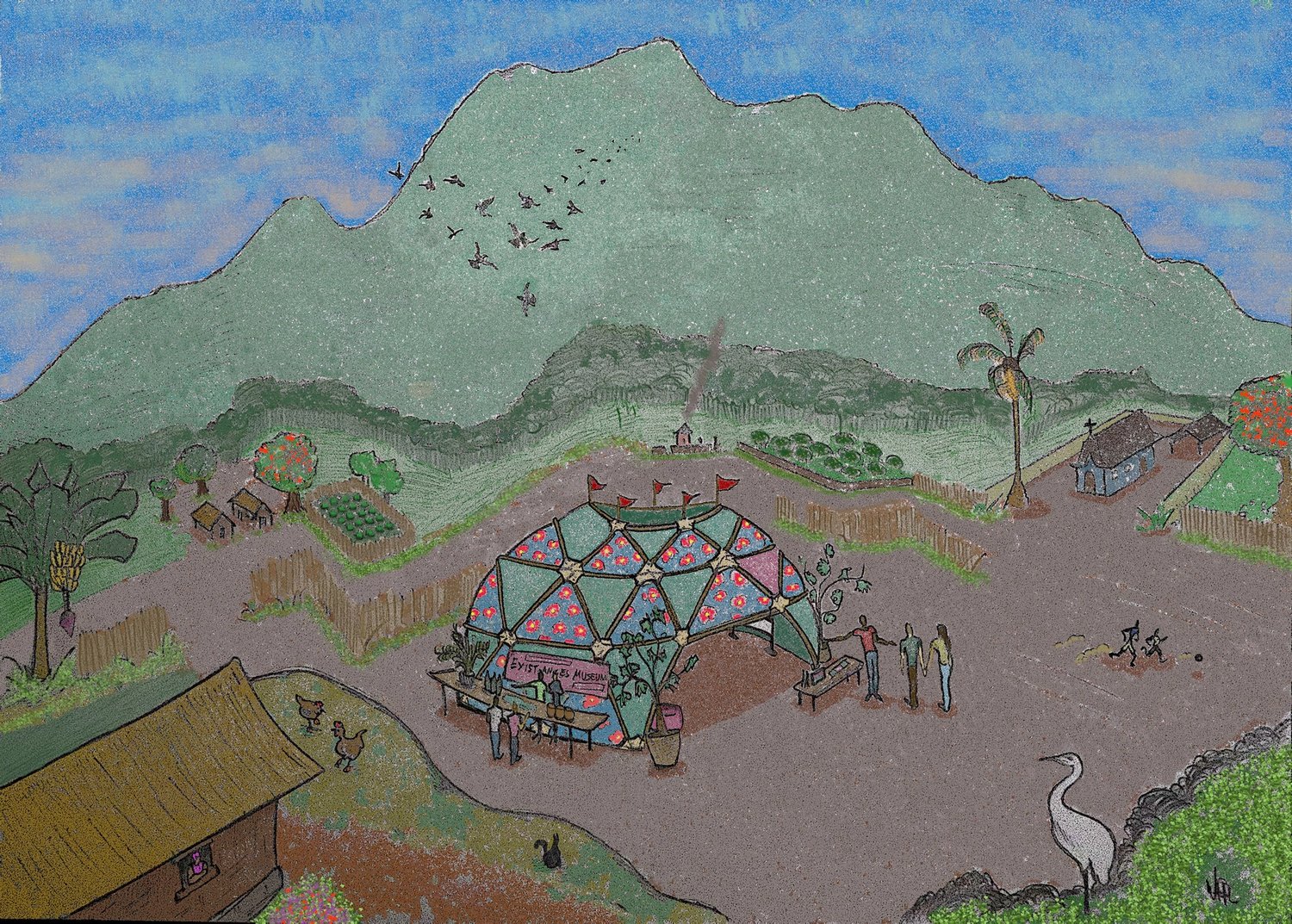What if museums were small places that supported communities in addressing local climate challenges and actions?
Existances
( Exhibit )
Museums traditionally bring together different objects, histories and narratives in a single location where they are then made available for research, preservation and display. The Existances Museum reverses this model by imagining a network of small, temporary structures spreading knowledge across a specific region – in this case the Brazilian state of Minas Gerais. Here, ecological knowledge developed by African and Amerindian communities has helped to prevent the destruction of ecosystems by large-scale agricultural businesses. The term ‘Existances’ is inspired by the continued existence of this knowledge and the resistance shown by these communities in protecting their land and ways of life.
For the exhibition at Glasgow Science Centre the Existances team have created scale-models to show what these small, constantly moving museums might look like. Made of biodegradable or recyclable materials, these would be gathering spaces of a different kind from the traditional museum. Rather than collecting historical objects, these spaces would allow people to come together and exchange knowledge – learning new skills and developing alternative practices to encourage a more harmonious relationship with nature. Instead of seeing African and Amerindian cosmologies as something from the past to be documented and preserved, Existances reminds us that such knowledge is vital for the future of the planet.
Scroll down to watch a series of videos about the Existances project.

Existances original concept visual
- Project Team
- Jairza Fernandes Rocha da Silva, Nayhara J. A. Pereira Thiers Vieira, João Francisco Vitório Rodrigues, Natalino Neves da Silva, Walter Francisco Figueiredo Lowande
- Project Name
- Existances
- Team Location
- Brazil